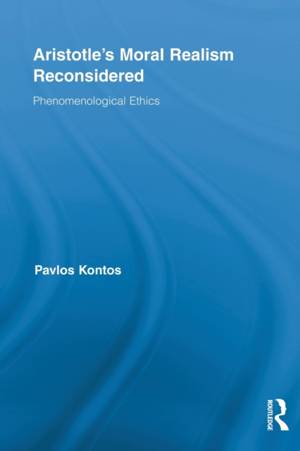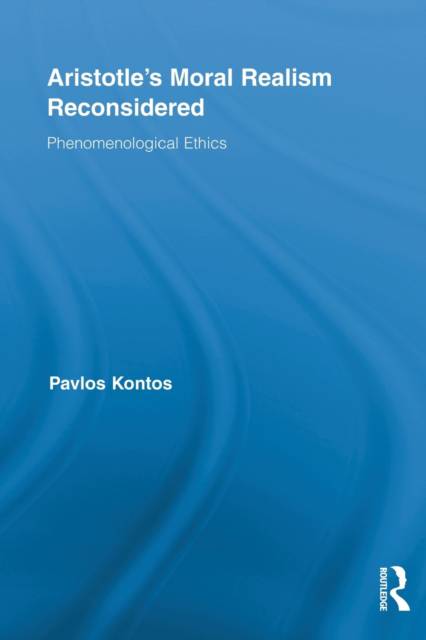
- Retrait gratuit dans votre magasin Club
- 7.000.000 titres dans notre catalogue
- Payer en toute sécurité
- Toujours un magasin près de chez vous
- Retrait gratuit dans votre magasin Club
- 7.000.0000 titres dans notre catalogue
- Payer en toute sécurité
- Toujours un magasin près de chez vous
Description
This book elaborates a moral realism of phenomenological inspiration by introducing the idea that moral experience, primordially, constitutes a perceptual grasp of actions and of their solid traces in the world. The main thesis is that, before any reference to values or to criteria about good and evil-that is, before any reference to specific ethical outlooks-one should explain the very materiality of what necessarily constitutes the 'moral world'. These claims are substantiated by means of a text- centered interpretation of Aristotle's Nicomachean Ethics in dialogue with contemporary moral realism. The book concludes with a critique of Heidegger's, Gadamer's and Arendt's approaches to Aristotle's ethics.
Spécifications
Parties prenantes
- Auteur(s) :
- Editeur:
Contenu
- Nombre de pages :
- 210
- Langue:
- Anglais
- Collection :
Caractéristiques
- EAN:
- 9780415856744
- Date de parution :
- 15-03-13
- Format:
- Livre broché
- Format numérique:
- Trade paperback (VS)
- Dimensions :
- 152 mm x 229 mm
- Poids :
- 290 g

Les avis
Nous publions uniquement les avis qui respectent les conditions requises. Consultez nos conditions pour les avis.






